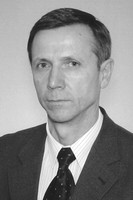Issues of inclusive education models for hearing-impaired students
Фотографии:
ˑ:
Teoriya i praktika fizicheskoy kultury №1 2018, pp.86-88
PhD, Professor V.A. Vishnevskiy1
Postgraduate N.R. Usaeva1
1Surgut State University, Surgut
The study analyses the most critical problems of the inclusive education process with an emphasis on the special educational needs. Subject to the study were sporting hearing-impaired students and their healthy peers (n=59) and faculty (n=25) of the graduate sub-department and other relevant departments contributing to the inclusive education. The sample competence in the universal education actions was rated by an expert valuation system based on the concept offered by the group of national psychologists under leadership of Professor A.G. Asmolov. The health culture development and self-development rates in the sample were obtained as recommended by the Institute for Educational Innovations under the Russian Education Academy with the sample motivations, values, cognitive, guiding and operational components and practical health-improvement experiences being surveyed and rated. Social positions of the students in the group were ranked by the relevant socio-metrics, with the group consolidation indices estimated by Seashore method. Attitudes to the inclusive education and degrees of satisfaction of the educational needs of the process actors were surveyed by a special questionnaire survey form to mine the students’ and educators’ opinions so as to rate by importance every educational need on a 5-point scale.
The study data and analyses demonstrate that the health-impaired and disabled people tend to feel the need, in addition to the usual needs, for universal educational actions to form the relevant skills and motivations for modern health culture. The study analyzed the medical, biological, psychological, social, institutional and practical provisions for success of the inclusive education of hearing-impaired students.
Keywords: special educational needs, inclusive education, universal educational actions, health culture.
References
- Asmolov A.G., Burmenskaya G.V., Volodarskaya I.A. Formirovanie universalnykh uchebnykh deystviy v osnovnoy shkole: ot deystviya k mysli. Sistema zadaniy. Posobie dlya uchitelya [Formation of universal educational activities at middle school: from action to thought. Task system. Teacher's Manual]. Moscow: Prosveschenie publ., 2010, 159 p.
- Lazarev V.S., Afanasyeva T.P., Eliseeva I.A. Printsipy i protsedury opredeleniya trebovaniy k rezultatam innovatsionnogo obrazovaniya na osnove kompetentnostnogo podkhoda: Metod. rekom. [Principles and procedures to determine requirements to results of innovative education based on competency building approach: Guidelines]. Moscow: IIA RAE publ., 2006, 64 p.
- Lubovskiy V.I. Osobye obrazovatelnye potrebnosti [Special educational needs]. Psikhologicheskaya nauka i obrazovanie, 2013, no. 5, P. 63. Available at: http://psyedu.ru/journal/2013/5/Lubovskiy.phtml (Date of access: 14.04.2017).




 Журнал "THEORY AND PRACTICE
Журнал "THEORY AND PRACTICE